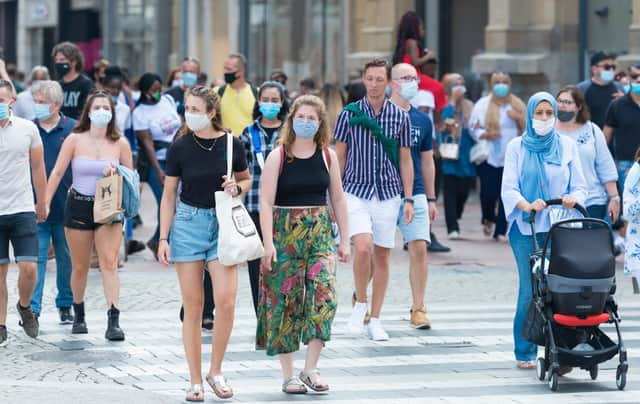Covid cases are rising in 75% of European countries - here's how the UK compares
This article contains affiliate links. We may earn a small commission on items purchased through this article, but that does not affect our editorial judgement.


Covid-19 cases are rising in 75 per cent of European countries, with much of the continent struggling to vaccinate its populations.
The highest increases in infections have been recorded in central and eastern Europe, which saw large-scale infections peak later than western Europe when the pandemic started a year ago.
Rising cases in Europe
Advertisement
Hide AdAdvertisement
Hide AdOut of 40 European countries, only nine recorded fewer cases in the first week of March than they did in mid-February, with the largest drops being in Portugal, Spain and the UK.
Spain is the only country in Europe that has a lower Covid-19 case rate than it did at the end of September.
However, much of Europe is seeing case rates increase, with parts of Estonia running out of hospital beds this week, while the Czech Republic and Slovakia have had to move coronavirus patients to other European countries. Meanwhile, Latvian hospitals are preparing for a third coronavirus wave.
Unlike when the pandemic first broke out last year, Europe is now faced with several new variants of the virus which have been found to be much more transmissible and associated with a higher death rate, such as the Kent variant.
Advertisement
Hide AdAdvertisement
Hide AdIt is hoped that the vaccine rollout will help to bring case rates back under control, although the EU is significantly further behind in comparison to the UK.
How does the UK compare?
The speed of the Covid-19 vaccination rollout in the UK has seen coronavirus cases take a steep drop, while hospital admissions and deaths have also fallen.
More than 22 million people have now been given their first dose of a coronavirus vaccine, while 1.2 million have received the full two doses.
The vaccine programme is now in its second phase, after everyone in the first four priority groups were offered a jab by mid-February, with the rollout now being expanded to include those aged 60 and over, and those with underlying health conditions.
Advertisement
Hide AdAdvertisement
Hide AdThe over 50s will follow and it is hoped that all adults in priority groups five to nine will have been offered a jab by 15 April.
In Europe, the Czech Republic is currently in the worst situation in terms of high case rates and low numbers of people vaccinated, while Slovakia, Poland, Estonia, Bulgaria, Sweden and Hungary are also not faring well.
While the UK has managed to provide more than a third of its population with the first dose of a Covid-19 vaccine, helping to bring infection rates under control, the rising cases in Europe are still a cause for concern.
Dr Stephen Griffin, a virologist at the University of Leeds, told Sky News: "I think we should be shutting our borders as we've got possible variants that can get imported.
Advertisement
Hide AdAdvertisement
Hide Ad"It's difficult to say this without being accused of being a scaremonger but there is a human cost and we're still seeing deaths.
"If we keep our borders too open we'll get this tail that the virus can hook on to, it won't take much to kick off again in the UK - we're not out of danger yet."